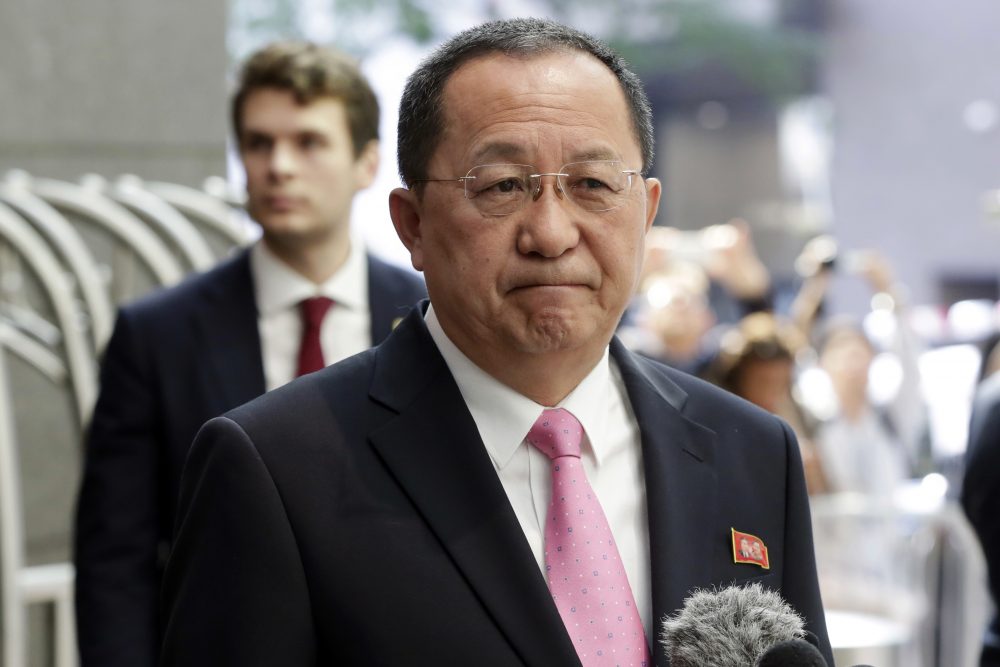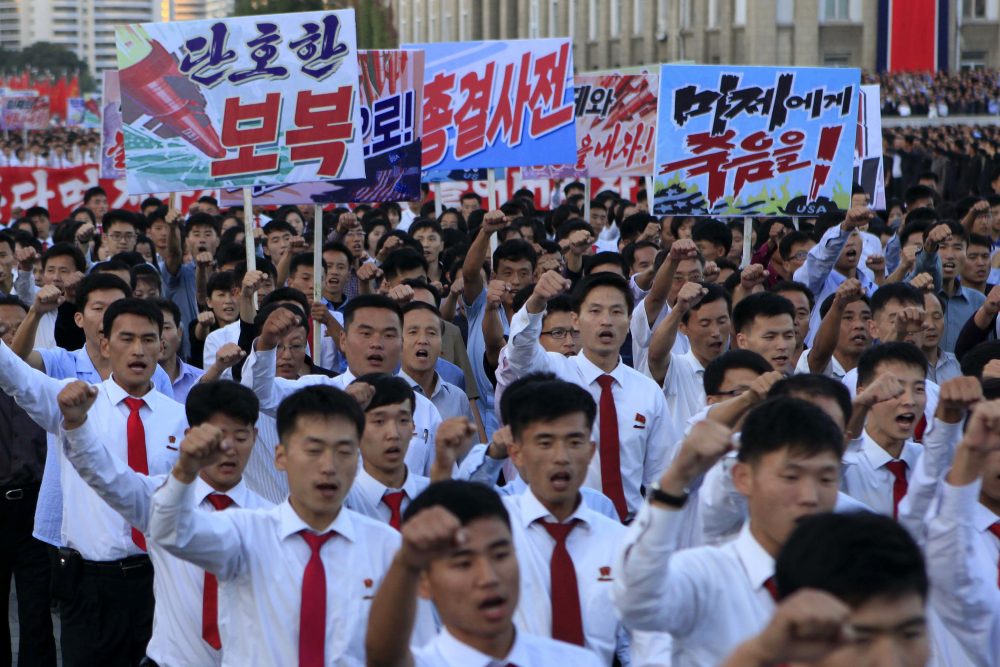Advertisement
commentary
Trump's Careless North Korea Threats Obscure The Humans Who Would Suffer

On July 16, 1945, the first atomic bomb was successfully tested in Alamogordo, New Mexico. Robert Oppenheimer, the director of the Los Alamos Laboratory that developed the bomb, would later recall that, on witnessing the explosion, he found himself thinking of a line from the Bhagavad Gita: “Now I am become Death, the destroyer of worlds.” This ancient phrase is fitting when applied to the subject of nuclear weapons, a technology with the potential to end life on earth. When discussing such a terrible possibility, it makes sense that we should use only our most carefully considered words.
Last week, in his first address to the United Nations, President Trump did not do that. Like Oppenheimer, he spoke of destruction, but he did so without anything resembling gravitas. “The United States has great strength and patience,” Trump said, “but if it is forced to defend itself or its allies, we will have no choice but to totally destroy North Korea.” Today, North Korea’s Foreign Minister Ri Yong-ho called Trump’s subsequent threats (“Just heard Foreign Minister of North Korea speak at U.N. If he echoes thoughts of Little Rocket Man, they won't be around much longer!”) a declaration of war.
It is important to be clear about what Trump’s language really means. It does not refer just to regime change in North Korea, or a strike against the country’s nuclear facilities. Trump is threatening to kill every human in a nation of 25 million people. The president’s words betray a lack of understanding of what war really is. Of all the activities our species engages in, war is the most devastating. For the soldiers who fight them, wars can cause substantial physical and mental health trauma, such as post-traumatic stress disorder, depression and traumatic brain injury. For the civilians who live through them, wars can be equally unforgiving.
Consider the unfolding horror in Myanmar, where thousands of Rohingya Muslims have fled the country to escape what the United Nations High Commissioner for Human Rights has called an ethnic cleansing of their people. Tragically, when such conflicts occur, it is always the vulnerable who suffer most. Women and children are especially likely to experience poor health during war, with gender-based violence a particular hazard.
These facts, terrible as they are, all relate to “conventional” war. By floating the possibility of nuclear war, President Trump has raised the specter of something worse — the total annihilation of a country. In doing so, he has violated an international taboo. After the U.S. destroyed Hiroshima and Nagasaki during World War II, the global community made an effort to ensure that nuclear weapons would never again be used. Countries kept this peace during the tense years of the Cold War by viewing these weapons from the perspective of a generation that had seen what they can do firsthand. Leaders at the time knew that, for all the often-passionate differences that can exist between nations, nuclear war is simply unacceptable.

Trump’s words matter because they pave the way for making the unacceptable acceptable. This is something that we in public health try to do in reverse. Discussing the effects of diseases on populations can make it hard for people to empathize with large groups and mobilize to make them healthier. When we think of people as statistics, it triggers the analytic mode of our brain, which can dull our ability to imagine ourselves in the shoes of others. Our empathy is engaged when we contemplate individuals. This is why campaigns to raise funds for vulnerable groups like refugees tend to be more successful when they spotlight the plight of specific people, rather than large, faceless groups. For this reason, we tell the stories of individuals, even as we work to improve the health of populations.
I would like to suggest that our pursuit of health might inform our pursuit of peace. Health is a basic, existential priority. Because everyone seeks greater well-being, public health’s coalition is broad. It unites stakeholders in sectors as diverse as government, business, education and the arts around the shared goal of better health. These partnerships, more than any single vaccine or policy, make the difference in promoting health over the long-term. The North Korea standoff cries out for similar collaboration. If the U.S. chooses, it could take the lead in shaping international partnerships to head off the existential threat of nuclear war. This work begins with the words we use. By continuing to categorize our fellow humans as numbers and nations to potentially be destroyed, we risk forgetting that we are talking about people, opening the door to a disaster no one wants.
